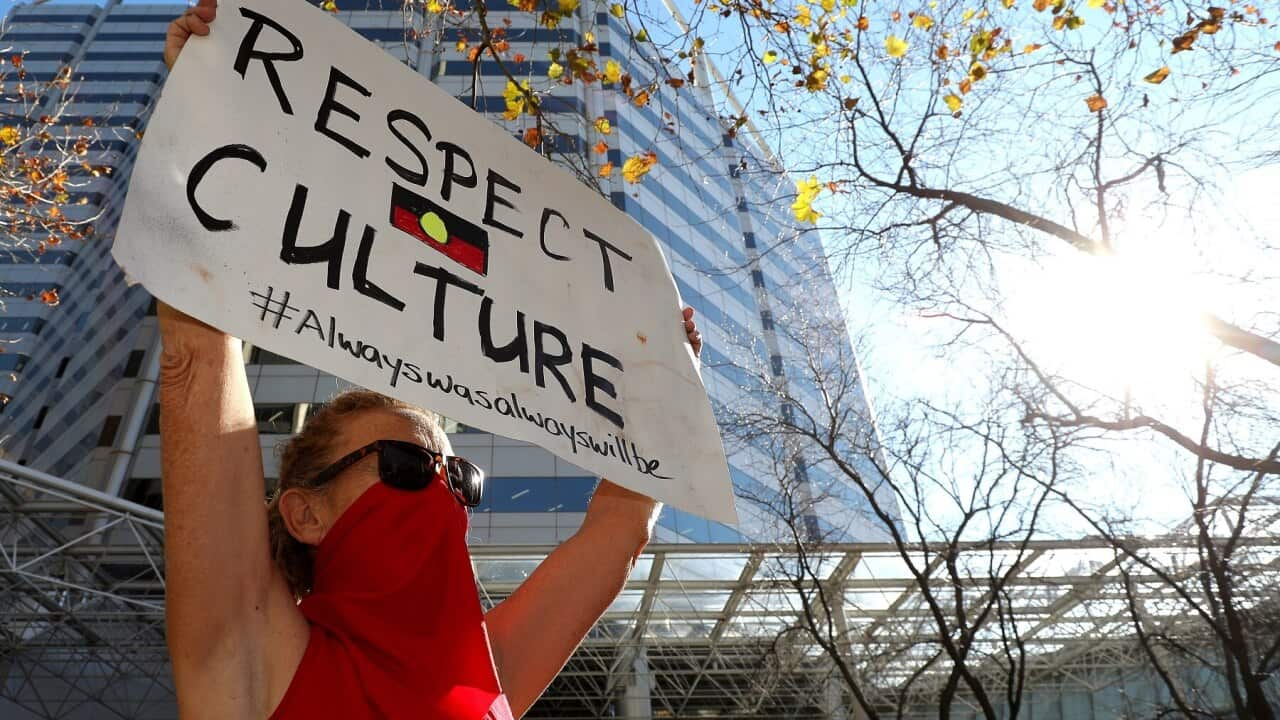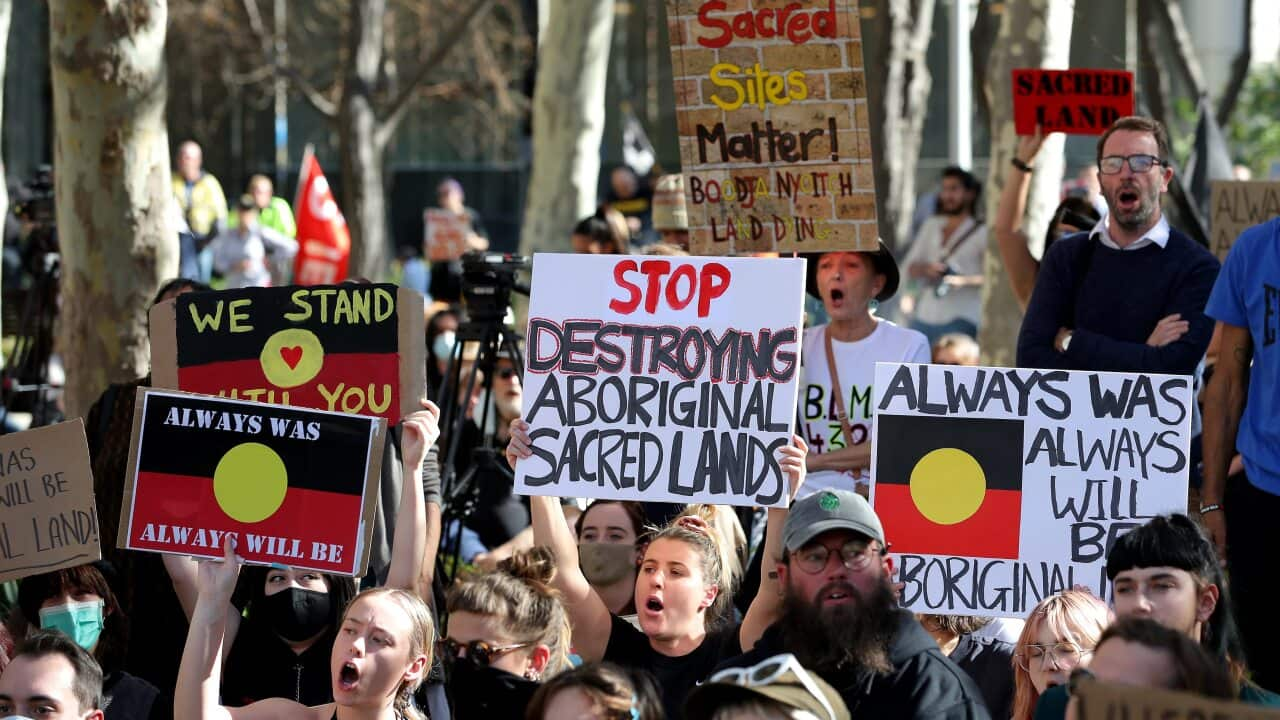The Yinhawangka Aboriginal Corporation told an inquiry into the destruction of 46,000-year-old rock shelters at Juukan Gorge they must rely on the "goodwill" of Rio Tinto not to destroy significant sites on their Country.
The Country overseen by the Yinhawangka Aboriginal Corporation neighbours the Puutu Kunti Kurrama and Pinikura Country, where the mining giant destroyed the rock shelters in May.
The corporation is attempting to prevent the destruction of 124 heritage sites that are in the path of Rio Tinto’s Western Range deposit on Yinhawangka country.
Rio Tinto has already received section 18 approval to destroy 26 of those 124 sites.
The corporation's CEO Grant Bussell told the inquiry a participation agreement signed with Rio Tinto prevents them from publicly objecting to mining activities, including those that will destroy significant sites.
Mr Bussell said particular clauses in the agreement usually prevents them from speaking about its contents, but Rio Tinto had written a letter to give him permission to speak freely about it to the inquiry.
The chairperson of the Yinhawangka Aboriginal Corporation, Halloway Smirke, said while Traditional Owners knew what they were signing when they entered into the agreement with Rio Tinto in 2013, it was a "rushed process".
"The people were aware of what they were signing, it was just a rushed process and we thought everything was going forward with goodwill, we thought the whole country was moving forward with goodwill," he said. Mr Bussell said since the inquiry began Rio Tinto had become more sensitive to protecting significant sites.
Mr Bussell said since the inquiry began Rio Tinto had become more sensitive to protecting significant sites.

The before and after of Juukan Gorge following a legal mining blast conducted by Rio Tinto in Western Australia' Pilbara region. Source: NITV
"Because of your inquiry, I think, and the failures that happened in the PKKP Country, they are more sensitive now and a little bit more careful about protection of sites," he said.
"We're getting positive sounding statements out of Rio. I couldn't point to a single, tangible bit of progress I have to say, but it's ongoing."
The inquiry also heard from mining company Woodside Energy, geologist Cedric Davies, who worked with Rio Tinto in 2006, and Western Australian Greens MP Robin Chapple.
Mr Davies has worked with both mining companies and Aboriginal corporations and said he wasn’t shocked that Rio had obtained a section 18 consent, but was shocked at the scale of the site that had been destroyed.
He said during his time working in Western Australia, he realised mining companies were receiving privileged treatment, down to the time it would take to get a response from government departments.
“If I ask for a map, if it’s for a mining company I usually get a map back within one or two days, with an apology if it’s later than that,” he said.
“If I’m acting on behalf of an Indigenous group, it’s usually after follow-up emails weeks later.”










